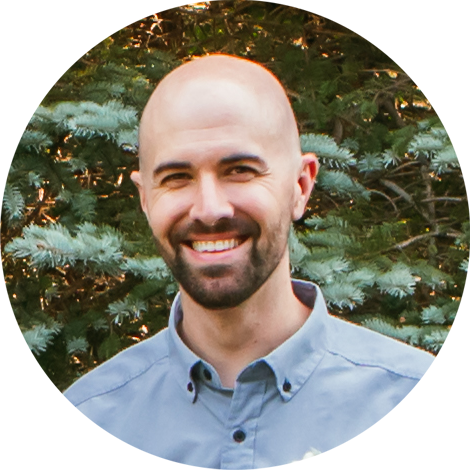
Zachary A. Caddick, PhD
AAAS Science & Technology Fellow | Cognitive Scientist | Science Policy | Program Evaluation
 Alexandria, VA
Alexandria, VA
 Email
Email
 Github
Github
 Google Scholar
Google Scholar
 LinkedIn
LinkedIn
 ORCID
ORCID
 OSF
OSF
 ResearchGate
ResearchGate
 Alexandria, VA
Alexandria, VA Email
Email Github
Github Google Scholar
Google Scholar LinkedIn
LinkedIn ORCID
ORCID OSF
OSF ResearchGate
ResearchGate
About Me
I am a cognitive psychologist with a strong foundation in research, currently advancing my career in science policy at the National Science Foundation (NSF) in Alexandria, Virginia. With over a decade of experience in psychology, research design, data analysis, statistics, and programming, I am passionate about using scientific insights to inform policy and address complex societal challenges.
In my current role, I have the privilege of applying my research skills to evaluate and shape initiatives that drive innovation, foster strategic partnerships, and advance public outcomes. My work bridges the gap between academic research and policy implementation, ensuring evidence-based approaches to some of today’s most pressing issues.
Throughout my career, I have been driven by a curiosity to understand how people process information. My research has explored how prior experiences, personal beliefs, motivation, and states of consciousness, such as fatigue and circadian rhythms, influence learning and decision-making. This throughline reflects my commitment to generating insights that improve human performance, well-being, and collective outcomes.
Research History
My research journey has focused on how people learn, make decisions, and reason—beginning with individual-level processes, and expanding to collective and systemic contexts.
As a master's student at San José State University, I examined how motivation and prior beliefs shape judgments about climate change, resulting in a publication in Thinking & Reasoning.
I began working at NASA’s Human Systems Integration Division as an intern during my master’s program at San José State University, and continued there full time after completing my coursework. In that role, I contributed to a wide range of human performance projects, including studies on sleep deprivation, fatigue, circadian rhythms, maritime pilots, training and transfer of learning, and sleep environments for long-duration space missions, as well as broader research on people living and working in extreme environments.
During my PhD at the University of Pittsburgh, I explored how individuals learn in complex, dynamic environments, leading to a publication in Cognitive Science. I also investigated the development and maintenance of expertise, particularly among physicians, through a series of literature reviews and conceptual papers. This work culminated in five peer-reviewed publications and a special journal issue on the cognitive science of medical expertise. My dissertation, supported by a Mellon Fellowship, extended this line of work into collective decision-making. I developed a novel framework to examine how individual preferences, prior knowledge, and voting systems interact to produce group-level outcomes.
As a postdoc at Oregon Health & Science University, I brought my research full circle—linking sleep and circadian rhythms with decision-making. I led studies on how insufficient sleep impacts susceptibility to misinformation and how internal clocks affect cognitive performance and health.
Now, I’m applying this systems-level thinking in science policy. As a Science & Technology Policy Fellow with the AAAS at the National Science Foundation, I help evaluate major innovation programs within the Technology, Innovation, and Partnerships (TIP) Directorate. I focus on making sure these initiatives are effective, equitable, and aligned with national science and technology goals.
Personal Hobbies & Interests
Outside of work, I enjoy a variety of hobbies that span music (listening, playing, and attending concerts), hockey, hiking, and rock climbing. I also enjoy coding, solving statistical problems, and working on design-related side projects. I like to experiment with baking and food fermentation. I am also drawn to deep dives into random topics through interviews, lectures, and documentaries, and I'm always open to exploring new hobbies and perspectives.
I am a cognitive psychologist with a strong foundation in research, currently advancing my career in science policy at the National Science Foundation (NSF) in Alexandria, Virginia. With over a decade of experience in psychology, research design, data analysis, statistics, and programming, I am passionate about using scientific insights to inform policy and address complex societal challenges.
In my current role, I have the privilege of applying my research skills to evaluate and shape initiatives that drive innovation, foster strategic partnerships, and advance public outcomes. My work bridges the gap between academic research and policy implementation, ensuring evidence-based approaches to some of today’s most pressing issues.
Throughout my career, I have been driven by a curiosity to understand how people process information. My research has explored how prior experiences, personal beliefs, motivation, and states of consciousness, such as fatigue and circadian rhythms, influence learning and decision-making. This throughline reflects my commitment to generating insights that improve human performance, well-being, and collective outcomes.
Research History
My research journey has focused on how people learn, make decisions, and reason—beginning with individual-level processes, and expanding to collective and systemic contexts.
As a master's student at San José State University, I examined how motivation and prior beliefs shape judgments about climate change, resulting in a publication in Thinking & Reasoning.
I began working at NASA’s Human Systems Integration Division as an intern during my master’s program at San José State University, and continued there full time after completing my coursework. In that role, I contributed to a wide range of human performance projects, including studies on sleep deprivation, fatigue, circadian rhythms, maritime pilots, training and transfer of learning, and sleep environments for long-duration space missions, as well as broader research on people living and working in extreme environments.
During my PhD at the University of Pittsburgh, I explored how individuals learn in complex, dynamic environments, leading to a publication in Cognitive Science. I also investigated the development and maintenance of expertise, particularly among physicians, through a series of literature reviews and conceptual papers. This work culminated in five peer-reviewed publications and a special journal issue on the cognitive science of medical expertise. My dissertation, supported by a Mellon Fellowship, extended this line of work into collective decision-making. I developed a novel framework to examine how individual preferences, prior knowledge, and voting systems interact to produce group-level outcomes.
As a postdoc at Oregon Health & Science University, I brought my research full circle—linking sleep and circadian rhythms with decision-making. I led studies on how insufficient sleep impacts susceptibility to misinformation and how internal clocks affect cognitive performance and health.
Now, I’m applying this systems-level thinking in science policy. As a Science & Technology Policy Fellow with the AAAS at the National Science Foundation, I help evaluate major innovation programs within the Technology, Innovation, and Partnerships (TIP) Directorate. I focus on making sure these initiatives are effective, equitable, and aligned with national science and technology goals.
Personal Hobbies & Interests
Outside of work, I enjoy a variety of hobbies that span music (listening, playing, and attending concerts), hockey, hiking, and rock climbing. I also enjoy coding, solving statistical problems, and working on design-related side projects. I like to experiment with baking and food fermentation. I am also drawn to deep dives into random topics through interviews, lectures, and documentaries, and I'm always open to exploring new hobbies and perspectives.